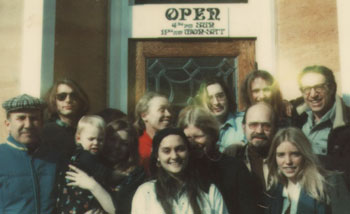Book Fare: “Builder’s Apprentice”
It is both a luxury and a curse of modern life to be doing “all the right things” while fearing you’ve missed something vital along that road not taken. Andy Hoffman, a University of Michigan professor and author of “Builder’s Apprentice,” confronted that suspicion in the mid-1980s while mulling grad school offers from Harvard and Berkeley.
As he prepared to graduate with a bachelor’s degree (“grades thirteen, fourteen, fifteen and sixteen”) in chemical engineering, Hoffman writes, he “fumbled” through interviews with prospective employers: “I had assumed that recruiters would tell me what I was supposed to do for them. … I would be guided on to the next step in life.” He took a job with the Environmental Protection Agency, “generating paperwork” for two years, and assumed that the next step – and the cure for his aimlessness – would be graduate school in public policy.
But what he really wanted to do was build houses. [Full Story]




